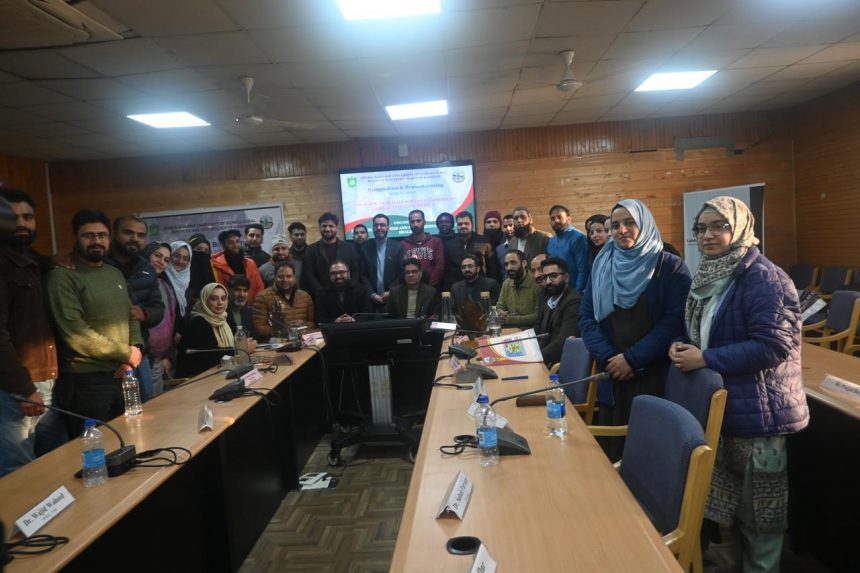The Institute of Business and Policy Research (IBPR) at SKUAST-Kashmir Monday hosted a landmark symposium titled “Engaging with Data for Impact Decisions and Better Governance” on Monday Shalimar Campus.
The event brought together policymakers, researchers, industry leaders, and data experts to explore the transformative potential of data-driven governance in shaping more effective and transparent institutional efforts.
The symposium focused on the pivotal role of data analytics, artificial intelligence, digital transformation, and evidence-based policymaking in strengthening governance. It highlighted the importance of an integrated approach to solving problems, optimising resource allocation, and improving public service delivery. The event facilitated meaningful discussions and knowledge exchange among thought leaders from diverse fields.
Prof. S.H. Baba, the programme Director, shared critical insights into the evolving role of data in governance and public administration, emphasising that data is no longer just a tool but the foundation of modern governance. Prof. M. Saleem Khan, Head of the Department of Social and Preventive Medicine at GMC Srinagar, commended the initiative, stressing the importance of building an ecosystem that aligns work-life and lifestyle with job performance and societal needs.
Dr. Navid Nazir, a panellist, exemplified how data-driven decision-making during the COVID-19 pandemic proved vital in saving lives and optimising healthcare resources. Meanwhile, Dr. Majid Zaman, Controller of Examinations at the University of Kashmir, highlighted the need for integrating data analytics in governance to address complex challenges in sectors like agriculture, economy, and society. Prof. S.A. Wani, Director of Planning and Monitoring at SKUAST-K, spoke about data as a powerful asset in driving transformative change across governance. He reinforced SKUAST-K’s commitment to fostering a culture of data-driven decision-making for sustainable agricultural research and development.
Prof. Mukhtar Khandey from the University of Kashmir advocated for a shift in mindset alongside technological advancements, suggesting that collaborative discussions, expert insights, and real-world case studies should be included in the teaching-learning ecosystem. Prof. Anzar Khuroo, from the Centre for Biodiversity, emphasised the importance of data in sectors such as agriculture, biodiversity conservation, and environmental governance, particularly in areas like predictive modelling for climate resilience and real-time monitoring of natural resources.
The panel discussion concluded with insightful deliberations on the transformative role of data-driven decision-making in governance, policy formulation, and institutional resilience. The session was expertly moderated by Dr. Ambreen Hamdani, Assistant Professor at CAIML, and Dr. Shazia Gulzar, Assistant Professor at FoA, SKUAST-K. The event concluded with a vote of thanks by Dr. Omar Fayaz Khan, expressing gratitude to the distinguished speakers, panellists, organisers, and attendees for their valuable contributions.

